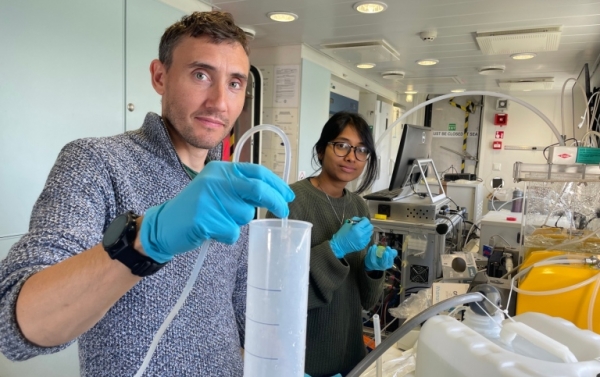How does the smell of the sea impact the world’s climate? This question lies at the heart of the Cyano-VOC research project. Within this endeavour, aerosol chemists collaborate with microbiologists to investigate the volatile organic compounds emitted by cyanobacteria and other plankton residing along the coastlines of the Baltic Sea.
In a warmer climate, cyanobacterial blooms in the Baltic Sea are anticipated to increase. However, these blooms could also impact the Earth’s climate by releasing gases into the atmosphere.
"The familiar 'smell of the sea' is actually a mixture of volatile organic compounds, known as VOCs”, explains, Sneha Aggarwal, a PhD student in the Department of Environmental Science at Stockholm University. “We are investigating the specific components responsible for this scent."
Critically, some VOCs are detrimental and can affect air quality at ground level. In addition, certain VOCs can form aerosols, which, in turn, contribute to cloud formation. Depending on the characteristics of these clouds and their altitude, they can either cool the climate (by blocking solar radiation) or contribute to warming (by trapping heat in the atmosphere).
Read more at Stockholm University
Image: Matt Salter och Snega Aggarwal during a three-day sampling expedition aboard R/V Electra analysing volatile organic compounds (VOCs) released by cyanobacteria blooms. (Photo Credit: Lisa Bergqvist)


